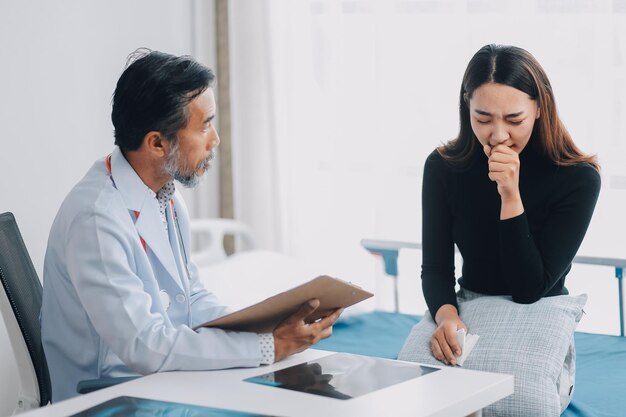The Anxiety-Blood Pressure Connection: What You Need to Know
Imagine waking up to a day filled with possibilities. The air feels crisp, the sky is clear, but somewhere inside you resides a nagging tension—a feeling of anxiety. As your heart races, you may begin to wonder, "Is this anxiety affecting my blood pressure?" It's a compelling question that many ponder, especially given the widespread prevalence of both anxiety and hypertension. Let's explore this connection in depth, focusing on how anxiety could potentially influence blood pressure and what this means for your health.
Understanding Anxiety and Its Forms
Anxiety is a natural part of life, experienced by everyone at different times. It's the body's response to stress and can help you stay alert and focused. However, when anxiety becomes chronic or overwhelming, it can lead to a multitude of health issues, including possible impacts on blood pressure.
Types of Anxiety
- Generalized Anxiety Disorder (GAD): Persistent, excessive worry about various aspects of life.
- Panic Disorder: Involves sudden episodes of intense fear or apprehensions.
- Social Anxiety Disorder: Intense fear or anxiety in social situations.
- Specific Phobias: Extreme fear of specific objects or situations.
- Post-Traumatic Stress Disorder (PTSD): Anxiety following trauma, which can manifest in numerous forms.
Understanding these types helps us appreciate how anxiety might manifest and potentially interact with physical health indicators like blood pressure.
Blood Pressure Basics
Before diving into the anxiety-blood pressure conundrum, it's crucial to understand what blood pressure signifies. Blood pressure is the force exerted by circulating blood on the walls of blood vessels. It operates within a defined range and consists of two readings:
- Systolic Pressure: The top number, indicating pressure during heartbeats.
- Diastolic Pressure: The bottom number representing pressure between beats.
Hypertension, or high blood pressure, often goes unnoticed due to its lack of immediate symptoms, yet it can have significant long-term effects, such as heart disease and stroke.
Is There a Direct Link Between Anxiety and Hypertension?
The question of whether anxiety directly causes high blood pressure is complex. Anxiety can certainly lead to temporary spikes in blood pressure due to increased heart rate and stress hormone release, but can it contribute to chronic hypertension? Here's where things get nuanced.
Acute Effects of Anxiety on Blood Pressure
- Stress Hormones: Anxiety triggers the 'fight or flight' response, flooding the body with adrenaline and cortisol, which can cause temporary spikes in blood pressure.
- Increased Heart Rate: Fear or anxiety can increase heart rate, affecting blood flow and raising systolic blood pressure momentarily.
Long-Term Implications
While anxiety might lead to temporary increases, chronic high blood pressure is generally associated with lifestyle factors such as diet, obesity, physical inactivity, and genetics. Some studies suggest a possible indirect link where chronic anxiety could lead to behaviors that increase hypertension risk, like poor diet or reduced physical activity.
Exploring the Vicious Cycle
Anxiety and high blood pressure can create a cyclical problem. Anxiety-induced spikes can increase hypertension risks, and existing hypertension can foster anxiety about health concerns.
Breaking the Cycle
- Mindfulness and Stress Reduction: Techniques like meditation and controlled breathing can help manage anxiety and potentially moderate blood pressure fluctuations.
- Regular Exercise: Physical activity reduces anxiety and supports heart health, mitigating hypertension risk over the long haul.
- Professional Guidance: Seeking support from healthcare professionals can help address anxiety effectively and monitor blood pressure.
How Lifestyle Choices Matter
Whether or not anxiety is a direct cause of high blood pressure, lifestyle choices undeniably play a crucial role in managing both conditions.
Healthy Habits That Support Both
- Balanced Diet: Foods rich in potassium and low in sodium can maintain healthy blood pressure levels while providing nutrients that support brain health and mood stability.
- Adequate Sleep: Lack of restful sleep exacerbates anxiety and pushes blood pressure upward. Aim for 7-9 hours of quality sleep nightly.
- Hydration and Limiting Caffeine: Keeping hydrated and moderating caffeine intake could ease anxiety and steady blood pressure.
- Avoiding Tobacco and Limiting Alcohol: Smoking and excessive alcohol use can strain blood pressure and elevate anxiety levels.
Addressing Anxiety Without Medicating
Many seek non-pharmaceutical ways to manage anxiety. While medication can be beneficial, understanding these holistic methods can empower those exploring other avenues.
Natural Approaches
- Cognitive Behavioral Therapy (CBT): Engages thought patterns to impact anxiety positively.
- Mindfulness-Based Stress Reduction (MBSR): Uses meditation and yoga to increase awareness and reduce stress.
- Artistic Outlet: Engaging in creative activities like painting or music can redirect anxious energy productively.
When to Seek Professional Help
Understanding when anxiety warrants professional intervention is essential. If anxiety becomes debilitating or consistently affects daily life and health, consulting a mental health professional is advisable. They can provide tailored guidance, whether through therapy, counseling, or medication management.
Finding Peace Amidst the Pressure
Anxiety and the concern over rising blood pressure need not dominate your daily life. Fueling your journey toward calm involves blending awareness with proactive steps. By nurturing mental and physical well-being through mindful practices and considerate lifestyle choices, anxiety becomes less daunting, and your heart remains its vigorous self.
In Sum
Balancing anxiety and blood pressure hinges on awareness, active lifestyle choices, and adequate professional support. Embarking on this path isn't just about reducing numbers; it's about fostering a sense of peace and control, enabling you to meet life's moments, big and small, with confidence and grace.
Key Takeaways and Tips 🌟
- Anxiety does not directly cause chronic high blood pressure, but it can lead to temporary spikes.
- Lifestyle factors like diet, exercise, and stress management play key roles in managing both conditions.
- Embrace mindfulness practices such as meditation and controlled breathing to keep anxiety and blood pressure in check.
- A balanced diet and regular physical activity are essential to maintain optimal health.
- Practice adequate sleep habits and moderate caffeine consumption to reduce anxiety-induced effects.
- Seek professional guidance when anxiety becomes a barrier to daily life. Your well-being deserves proactive care!

